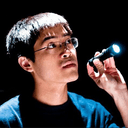Stay in the Loop
BSR publishes on a weekly schedule, with an email newsletter every Wednesday and Thursday morning. There’s no paywall, and subscribing is always free.
Diversity is a construct
Asian Arts Initiative, PAPA and InterAct’s Beyond Orientalism forum (second essay)

The evening of the Beyond Orientalism: The Philadelphia Forum at Asian Arts Initiative left me feeling deeply hurt and disappointed.
It started off well enough, setting up the event as a space for Asian-American artists and arts administrators to talk directly to the Philadelphia theater community about the pervasive problem of yellowface and Orientalism in our city and the greater culture. The panelists were a diverse collection of minds and people of various vocations who could speak to various perspectives of making art as an Asian American. It looked like a great opportunity for people to listen to voices often unheard or sometimes actively dismissed.
Not enough questions, the wrong answers
The question and answer section is where I believe things went off the rails. It began with a framing that allowed the gatekeepers of mainstream Philly theater to talk over the rest of us, to tell us, among other things, how difficult it is for them to implement diversity, how they don't know the numbers of audience members who might theoretically come to an "ethnic" play they might theoretically consider producing.
We had to hear them say, "We're trying and we're so sorry it's not working out yet." But the clear message was that they were trying to exonerate themselves for their complicity in the continued problem of racial misrepresentation in theater. They also told us that we have to keep trying harder, we have to be "tenacious," to be noticed, as if we who are not white or part of the dominant culture haven't already been working twice as hard for half as much. Or less.
We, a roomful of South- and East-Asian and Asian-American artists and community members, had to listen as an artistic director whitesplained "Asia as a construct.” How could this company produce an Indonesian play, for example, without using an actual Indonesian performer? Oh, I don't know: maybe in the exact same way they could produce an entire season of Jewish-American theatre and hire non-Jewish white performers to fill the roles.
Whiteness is also a construct. It's just the one they're most comfortable with.
Diversity is a byproduct
Was that night hard for some well-meaning, powerful white people? Sure. I actually hope it was. Just trust me on this: it's so, so much harder for the rest of us, tonight and yesterday and tomorrow and tomorrow and tomorrow. I sat in a room of my peers and community members and people I dearly love, and watched as all of us were hurt more and more deeply the longer we sat there. It should really resonate that the people I talked to who felt hurt the most were all people of color.
Diversity is not the goal, but rather the byproduct of representation and normalization. Diversity is just a numbers game, a mixing and matching of certain skin colors, eye shapes, and hair types to make it look like you're meeting some ineffable criteria. It exists only to give you just enough water in the bowl to wash your hands of the race divide in this country.
I am incredibly grateful to Emilya Cachapero and Rob Buscher, who closed out that otherwise harmful section. They were able to bring the conversation back to where it started and where it should have remained. The onus of justice that we as a marginalized group have carried should not continue to be on us. It's up to the gatekeepers to gamble on a very real future where monoculture falls by the wayside.
Forward march
I want to express my gratitude to the black artists and community members who showed up as well, and for showing solidarity with us. I see you, we see you, and we're here for you too. I am also grateful to the one white man who said, "Let's stop rewarding white institutions" when they fail at diversity. I am sorry I do not know your name.
Let me say this, and I hope those of you at the heads of theater companies will hear these words: we know what your questions are. We've always known. You're not asking the right questions, and you have never listened for the right answers.
There is a way forward, and we will find it. Get on board or be lost.
To read Cara Blouin's account of the Beyond Orientalism forum, click here.
To read Bi Jean Ngo's take on the Beyond Orientalism forum, click here.
What, When, Where
Beyond Orientalism: The Philadelphia Forum. Sept. 26, 2016 at the Asian Arts Initiative, 1219 Vine St., Philadelphia. (215) 557-0455 or asianartsinitiative.org.
Sign up for our newsletter
All of the week's new articles, all in one place. Sign up for the free weekly BSR newsletters, and don't miss a conversation.

 Lucas Nguyen
Lucas Nguyen